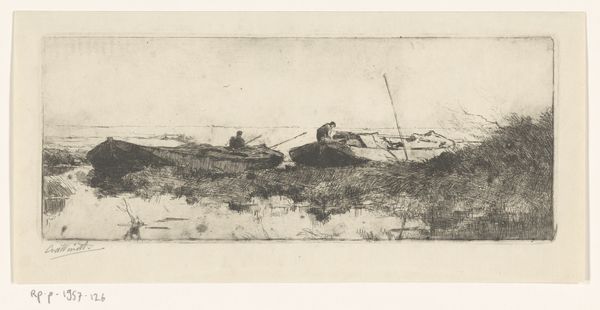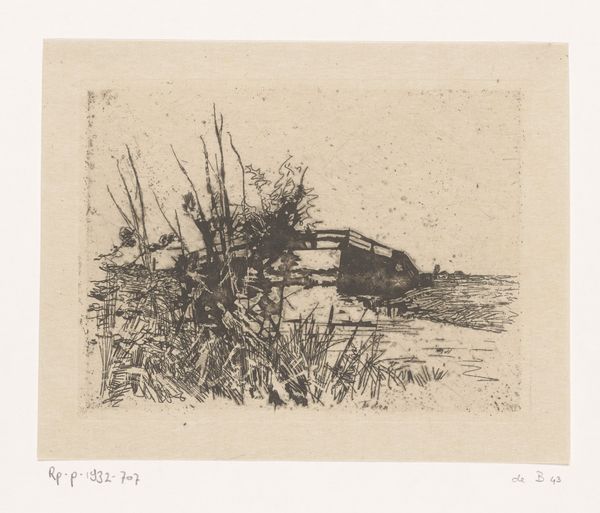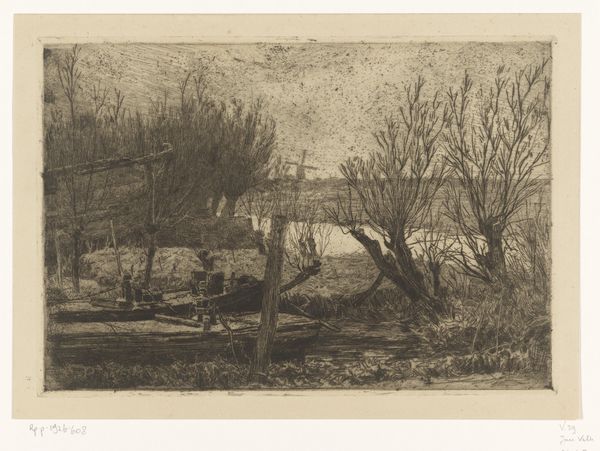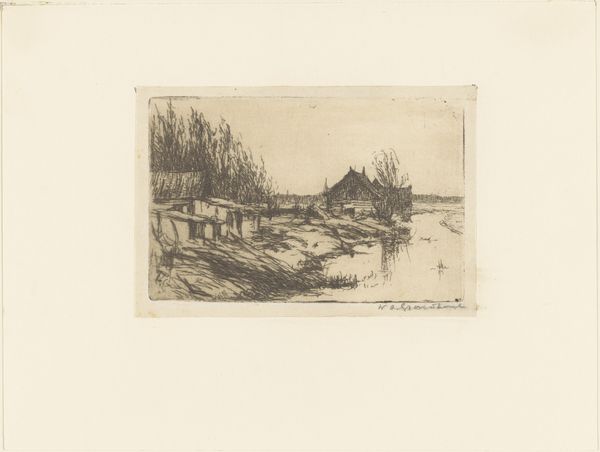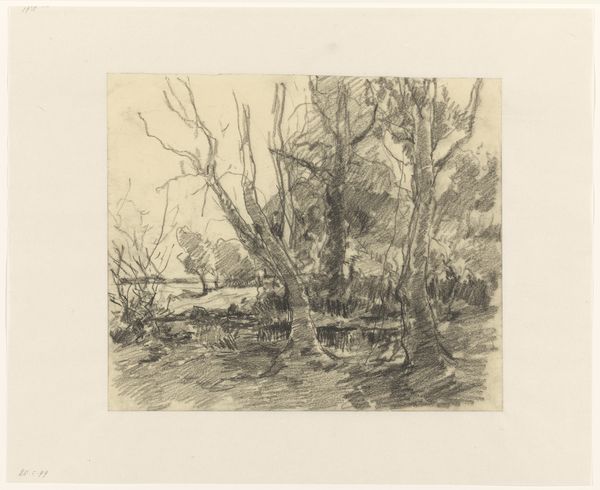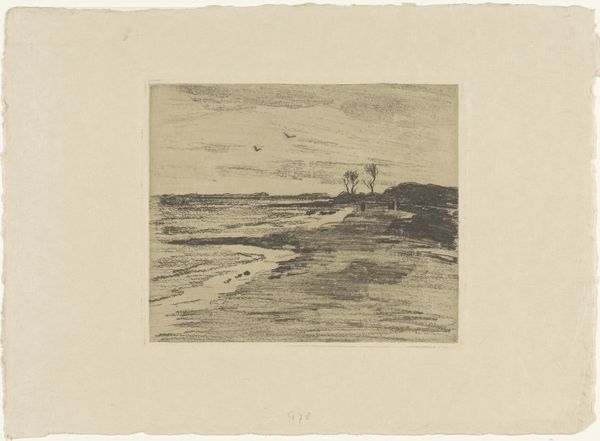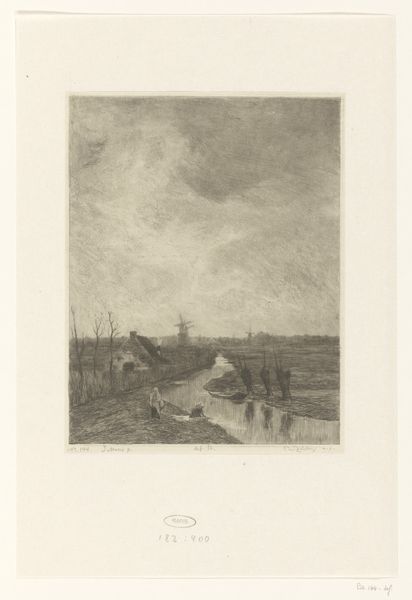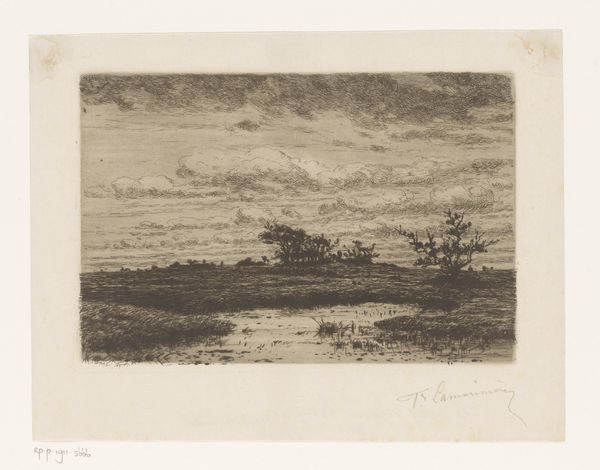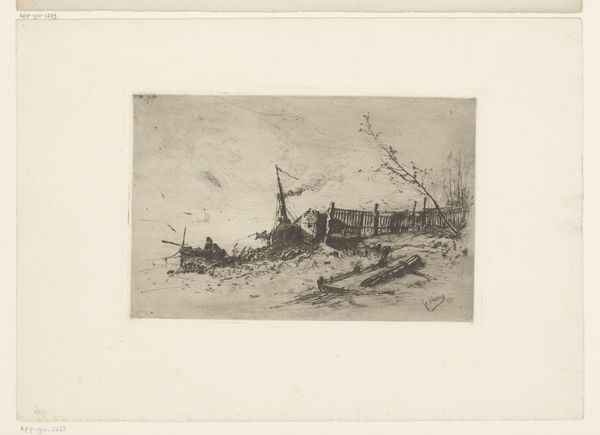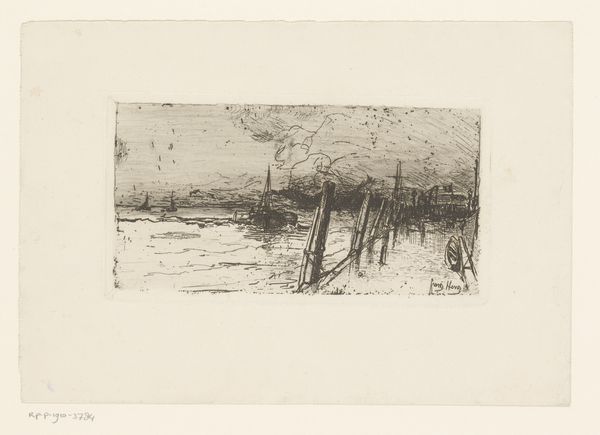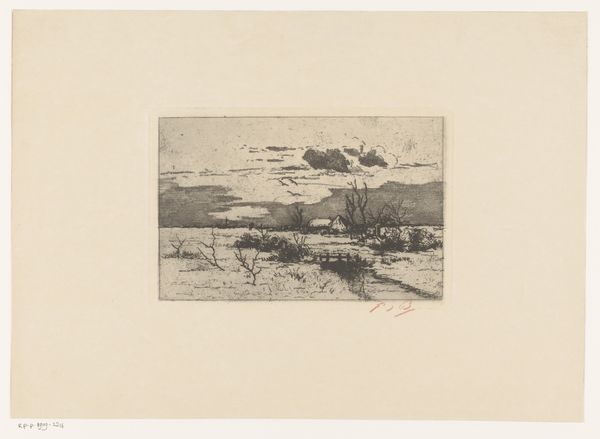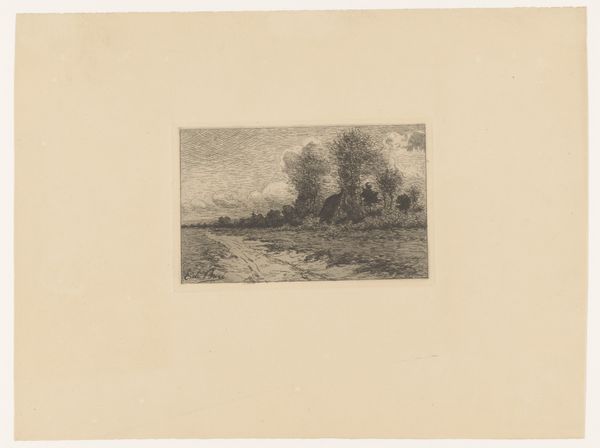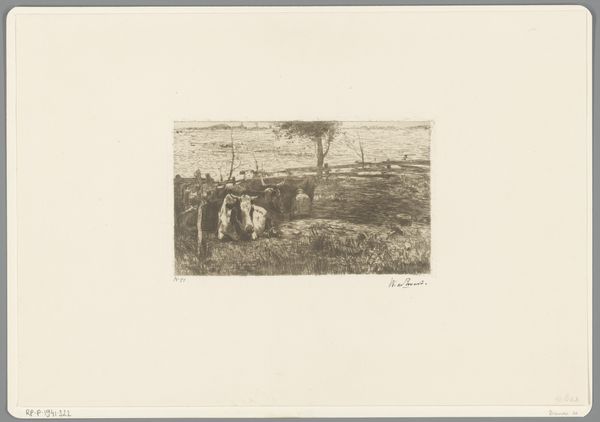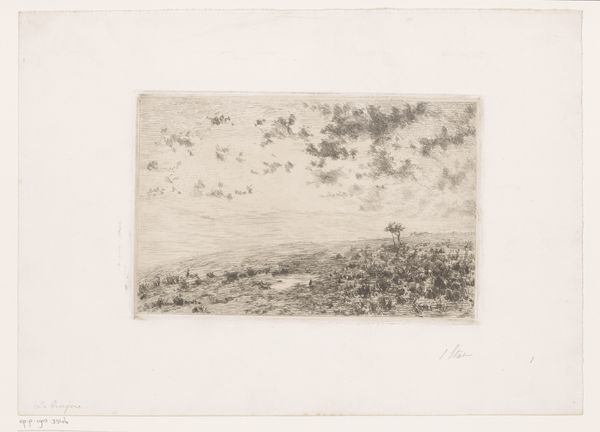
#
pencil drawn
#
photo of handprinted image
#
light pencil work
#
ink paper printed
#
pencil sketch
#
old engraving style
#
personal sketchbook
#
ink colored
#
sketchbook drawing
#
pencil work
Dimensions: height 121 mm, width 159 mm
Copyright: Rijks Museum: Open Domain
Curator: This is "Brug over een sloot, bij Giethoorn," or "Bridge over a ditch, near Giethoorn," created by Willem Bastiaan Tholen. It's hard to pinpoint the precise year, but we estimate it was made sometime between 1870 and 1931. It's currently held here at the Rijksmuseum. Editor: There's a definite tranquility to the piece. The tonality is so limited, all in these subtle greys, and yet the details around the vegetation draw your eye in a way that feels both immediate and lasting. Curator: Yes, it’s the texture that elevates it. The varying density of the lines gives the impression of depth, wouldn't you say? Especially around the reeds in the foreground, obscuring but also revealing the bridge beyond. Note also the interesting horizontal emphasis that serves to organize the forms. Editor: Those reeds certainly feel weighted with symbolic possibility. Water is a potent symbol of change and purification across many cultures. Perhaps the bridge signifies transition. Curator: That may be so, but on another level I see it functioning very simply, as a clever use of positive and negative space, dividing the image into these wonderfully compressed tonal bands. And, again, that horizontal emphasis draws us across that threshold. Editor: True, that compositional tactic enhances the idea of traversal, but the lack of figures on that bridge lends it an air of quiet expectation, suggesting journeys yet to be taken, decisions yet to be made. The stillness reflects something of human contemplation in relation to life’s pathways. Curator: A wonderfully subjective reading, which speaks to the image’s power. The formal decisions clearly enhance, or at least permit, your symbolic interpretation. Editor: It’s this convergence of symbol and structure that gives art its lasting appeal, no? Both methods can speak of history as well as inner, universal themes. Curator: Precisely! Ultimately, that’s what sustains us. A solid construction that holds myriad interpretations. Editor: Yes, and maybe it’s nice to pause with Tholen for a minute and appreciate a sense of openness where viewers are given the space to breathe and think.
Comments
No comments
Be the first to comment and join the conversation on the ultimate creative platform.
